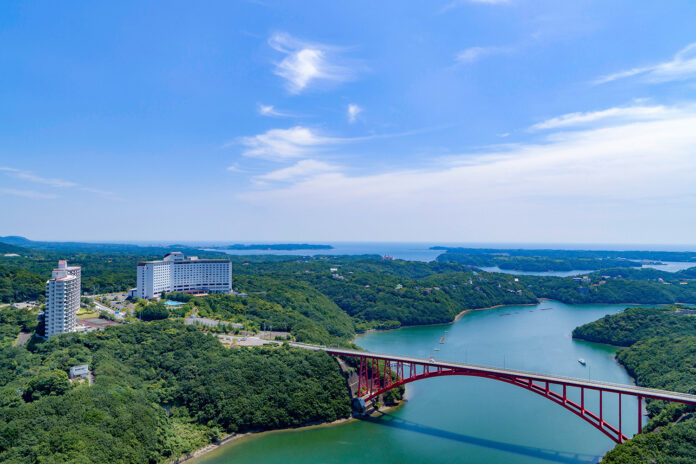Accor, the largest international hospitality group in the region, was expanding its footprint in Japan by acquiring the Daiwa Resorts portfolio, encompassing 23 properties and over 6,000 rooms across the country.
Japan’s tourism industry was experiencing a steady recovery and a warm welcome back to international travelers. To take advantage of this trend, Accor formed a strategic partnership with Ebisu Resort LLC, aiming to renovate and rebrand the Daiwa portfolio into Grand Mercure and Mercure hotels, offering guests unique and localized experiences.
Taking inspiration from Mercury, the Roman god of travel and commerce, Grand Mercure and Mercure hotels invited guests to immerse themselves in the rich cultural treasures of each destination. Grand Mercure hotels promised a premium experience with a “Proudly Local” approach, encouraging guests to participate in local celebrations and multi-sensory experiences crafted by native hosts. On the other hand, Mercure hotels offered high-quality midscale accommodations that sparked curiosity and discovery among their guests.
These properties were spread across Japan, from the northernmost prefecture of Hokkaido to the southernmost prefecture of Okinawa. Each location was strategically chosen, offering access to hidden gems such as Cape Zanpa in Okinawa, Asuka village in Nara, Shiroi Koibito Park in Hokkaido, and Senri Beach in Wakayama. Besides their distinctive settings, the hotels featured various amenities such as onsen (hot springs), saunas, swimming pools, and breathtaking views of the local landscapes.
Garth Simmons, the Chief Executive Officer of Accor’s Premium, Midscale, and Economy Division in Asia, expressed excitement about adding these exceptional hotels to their portfolio, meeting the rising demand for nature-oriented experiences among travelers. While major cities like Tokyo, Osaka, and Kyoto remained popular, Simmons highlighted the significance of escaping to less explored regions for an authentic cultural immersion.
He further stated, “We will build on the successful relationships Daiwa Resort has maintained within each region, and collaborate closely with our partners, Japan Hotel Reit Advisors, and Daiwa Resort’s asset manager, to revitalize these properties and welcome guests back by Q2 2024.”
In response to the rebranding, Koji Mayanagi, President & CEO of Daiwa Resort Co., Ltd., expressed gratitude to all those who supported Daiwa Resorts and shared his excitement about the transformation. He promised that the rebranded hotels would offer various enticing experiences and create lasting travel memories for their customers. He also emphasized their commitment to collaborating with local communities to promote the unique appeal of each region, not just within Japan but also worldwide.
Daiwa Resort hotels to be converted into Grand Mercure hotels
- Royal Hotel Okinawa Zanpamisaki
- Royal Hotel Nasu
- Royal Hotel Yatsugatake
- The Hamanako
- The Kashihara
- Royton Sapporo
- Hotel & Resorts Beppuwan
- Hotel & Resorts Minamiawaji
- Hotel & Resorts Ise-shima
- Hotel & Resorts Nagahama
- Hotel & Resorts Minamiboso
- Hotel & Resorts Wakayama-Minabe
Daiwa Resort hotels to be converted into Mercure hotels
- Hotel & Resorts Kyoto-Miyazu
- Hotel & Resorts Saga-Karatsu
- Hotel & Resorts Wakayama-Kushimoto
- Royal Hotel Nagano
- Hotel Toyama Tonami
- Royal Hotel Tosa
- Royal Hotel Daisen
- Royal Hotel Noto
- Royal Hotel Munakata
- Active Resorts Miyagi Zao
- Active Resorts Urabandai
The commencement of property renovations is scheduled for Q4 2023, with an estimated completion date in Q2 2024. Once the renovations are finished, the properties will officially operate under the renowned Grand Mercure and Mercure brands.
Discover more from SNAP TASTE
Subscribe to get the latest posts sent to your email.



